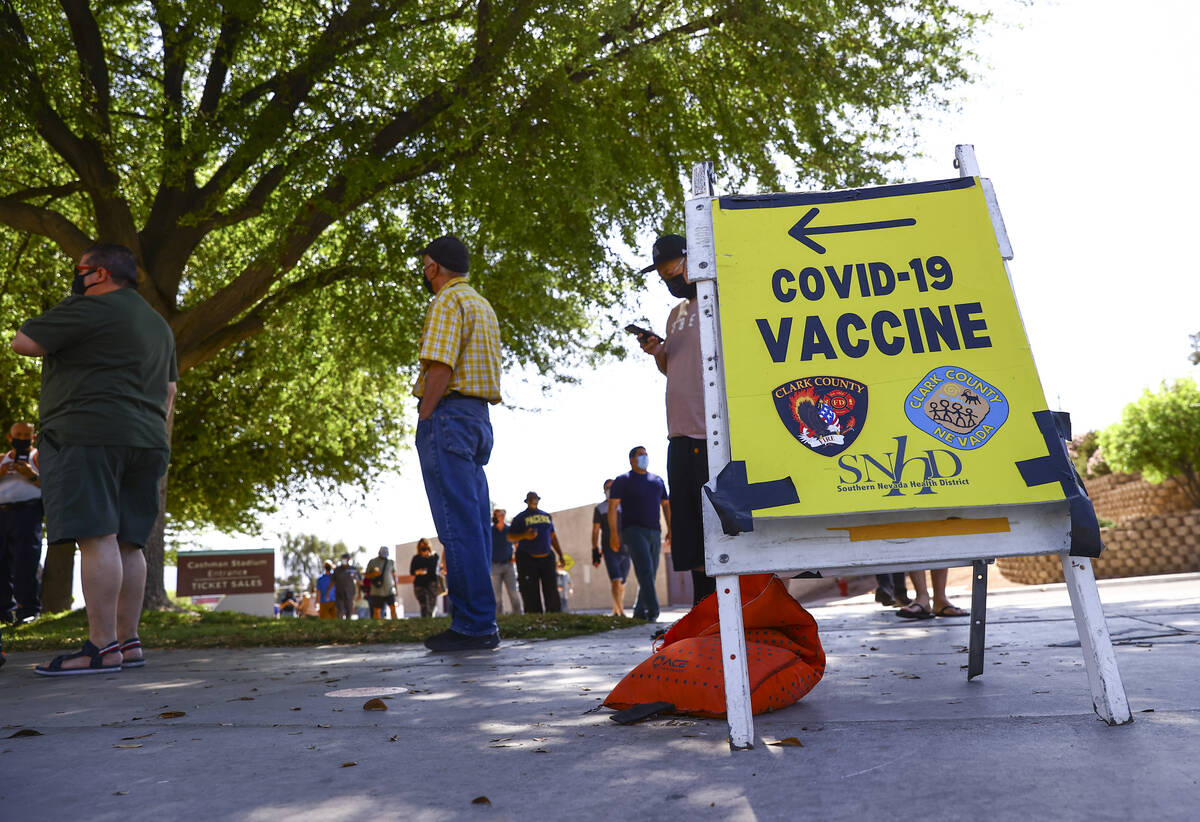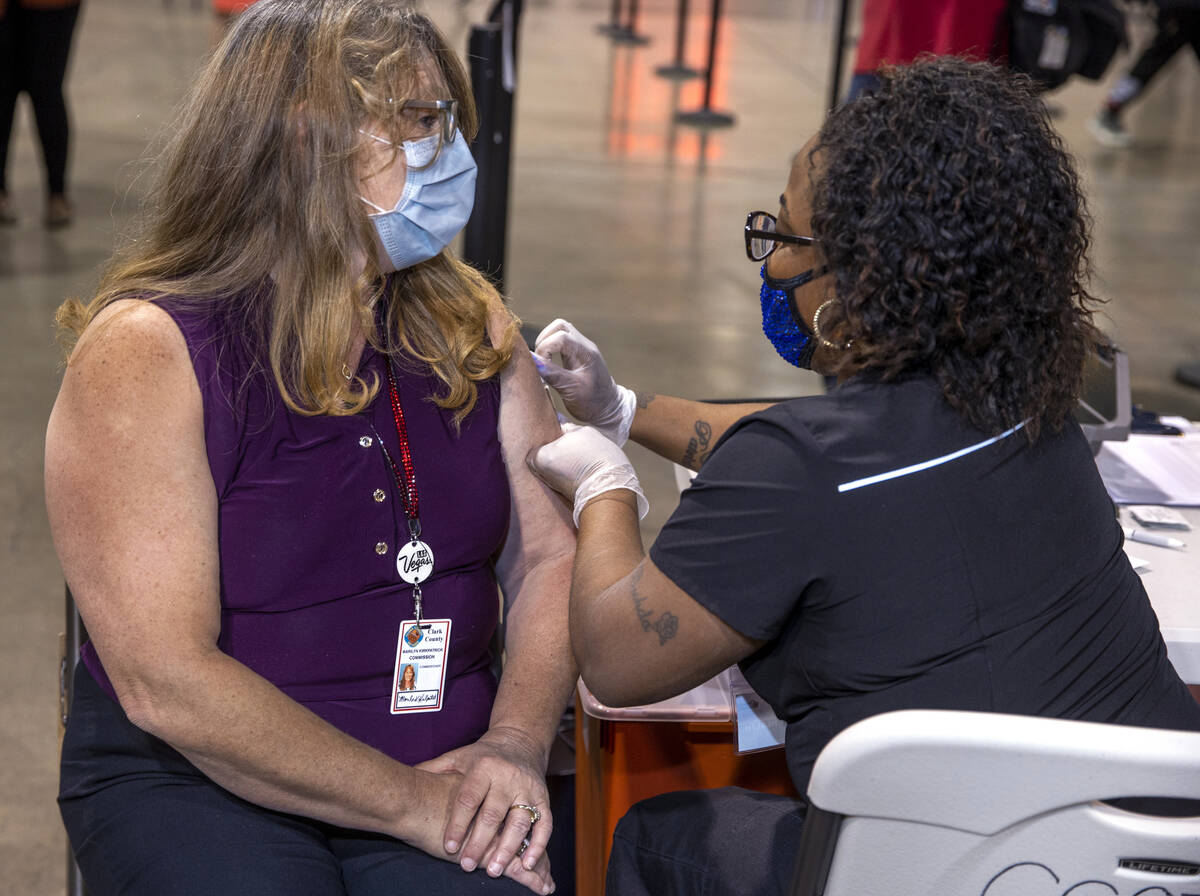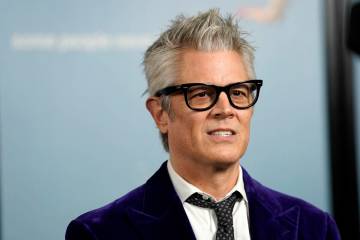Is Nevada headed for a ‘tripledemic’?
Once again, health officials fear there could be a severe flu season on top of a winter COVID-19 surge, only this time with a twist:
High numbers of a third respiratory illness known as RSV could add to the misery, causing what some are referring to as a “tripledemic.”
The term has been coined as high numbers of respiratory syncytial (sin-SISH-uhl) virus, or RSV, are being identified earlier than normal across much of the U.S. Parts of the country also are being hit by an early flu season.
This comes on top of predictions that new coronavirus variants will cause another surge of COVID-19, cases of which continue to inch up in Clark County, according to new data reported Wednesday.
“This is a concern about bad timing,” said Brian Labus, an assistant professor of epidemiology and biostatistics at UNLV’s School of Public Health.
“Any one of these things can put a lot of stress on our ERs,” he said. “All three happening at the same time would very much stress our medical system.”
Early wave of RSV
RSV is a common respiratory virus that usually causes mild, coldlike symptoms, with most people recovering in a week or two. But RSV can be serious, especially for infants and older adults, according to the Centers for Disease Control and Prevention.
The CDC has observed a recent increase in detections of RSV and associated emergency department visits and hospitalizations in multiple parts of the country, CDC public affairs representative Kate Grusich said.
“Some regions are experiencing near seasonal peak levels of circulation, which typically occur in December and January,” Grusich said in an email.
Clark County is seeing a “huge bump” in RSV, said Cassius Lockett, director of disease surveillance and control for the Southern Nevada Health District.
There have been 613 cases of RSV identified this month, compared with 483 last October and between 10 to 40 cases in the prior five Octobers, Lockett said.
In Northern Nevada, Dr. Bayo Curry-Winchell said she is seeing in urgent care clinics more cases than normal of RSV, many of them in children.
Most of the cases are mild to moderate, with a cough, runny nose and fever. “We’re also seeing children who are struggling to breathe,” said Curry-Winchell, St. Mary’s urgent care medical director.
There is no vaccine to prevent RSV and no antiviral medication to treat it. Patients with more serious cases can be given fluids and oxygen.
But any increase in cases doesn’t appear to be stressing Nevada hospitals.
“Nevada hospitals are not experiencing the strain caused by RSV, flu and COVID that hospitals in other parts of the country are experiencing,” said Jeanne Corbit with the Nevada Hospital Association.
Pediatric hospital occupancy is at 82 percent this week, which she described as “within the desired range.”
University Medical Center in central Las Vegas has experienced a “noticeable increase in pediatric patients with RSV and other rhinoviruses,” representative Scott Kerbs said.
“This is common for the fall season, and the increased patient volume is not unusual,” he said in an email.
Early flu season
Fears of a severe flu season in the U.S. didn’t come to pass the past two years, which some officials credit to pandemic measures such as masking and social distancing.
Beyond the ending of these measures, there are other reasons to be concerned about the potential for a more severe season this year, officials said.
There was significant influenza in Australia and elsewhere in the Southern Hemisphere, where flu season comes months earlier than in the U.S. and which can help predict what lies ahead for the northern hemisphere.
As in the Southern Hemisphere this year, some regions of the U.S. are seeing an earlier start than normal to the flu season.
“Early increases in flu activity have been reported in most of the country, with the highest levels of activity occurring in the southeast and south-central parts of the country,” the CDC’s Grusich said.
But flu activity has been minimal so far in Clark County, Lockett said. Only two flu hospitalizations have been reported in October.
COVID-19 uptick
A host of new coronavirus variants that show an increased ability to transmit have triggered predictions of another wave of COVID-19 this winter, though some authorities believe it won’t match those of previous winters, thanks to built-up immunity from vaccination and prior infection.
COVID-19 has been inching up in recent weeks in Clark County and Nevada. The 14-day average of daily new cases in the county numbered 126 this week, compared with 112 last week, according to data from the Nevada Department of Health and Human Services. Statewide, the average increased to 165 from 151. These numbers are undercounts because of the increased use of at-home antigen tests.
COVID-19 hospitalizations also ticked up in the county to 111 from last week’s 99. Statewide, they numbered 141, compared with last week’s 126.
The 14-day average of daily deaths increased to 1 from zero in the state. In the county, the figure remained at zero.
‘Get the damn vaccine’
UNLV family practitioner Dr. David Weismiller believes COVID-19 cases will increase this winter and fears “the perfect storm.”
But Weismiller, a professor at the Kirk Kerkorian School of Medicine, said the community is not defenseless against a possible “tripledemic.”
“The conversation we are having today pushes us once again to recognize that vaccines are the way we prevent illness, hospitalization and death,” he said.
He acknowledged growing weary of trying to understand what stops people from getting a flu or COVID shot, saying that he has had patients walk out of his office rather than discuss their hesitancy.
His frustration is heightened, he said, by his concern for “war-weary” hospital personnel at the end of their ropes.
He claimed to be reaching the point of simply saying to patients, “Get the damn vaccine and be quiet.”
Contact Mary Hynes at mhynes@reviewjournal.com or 702-383-0336. Follow @MaryHynes1 on Twitter.












































